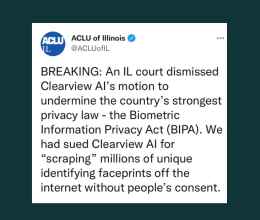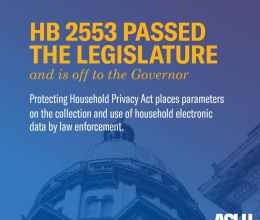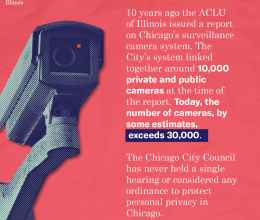
Statement of Mary Dixon, Legislative Director:
Recent technological developments, including the ability to track a person’s location through their iPhones, iPads and other electronic devices, have profoundly expanded the surveillance capabilities of law enforcement agencies at the expense of individual privacy. Where you go reveals a great deal about who you are and what you value. As a federal appeals court judge said, “A person who knows all of another’s travels can deuce whether he is a weekly church goer, a heavy drinker, a regular at the gym, an unfaithful husband, an outpatient receiving medical treatment, an associate of particular individuals or political groups –and not just one such fact about a person, but all such facts.” A 2012 Congressional report found that cellphone carriers responded to more than 1.3 million requests for subscriber information from law enforcement across the nation in 2011.
Without a judge reviewing a request for location information, an officer could track someone for personal purposes, as occurred in Alabama when a sheriff told a carrier he needed to track a cellphone in an emergency involving a child, who turned out to be his daughter on a date. Without a court order showing probable cause that crime is afoot law enforcement could gather cell phone tracking to monitor peaceful protesters, as was done by Michigan police who solicited data for all phones in an area where a peaceful protect was expected.
Senate Bill 2808 protects privacy by requiring a court order based on probable cause of crime before law enforcement can access current or future information from an individual's electronic device. with narrow exceptions, including specific emergencies. Senator Daniel Biss and Representative Ann Williams should be commended for taking on this issue and moving this legislation to the Governor.






